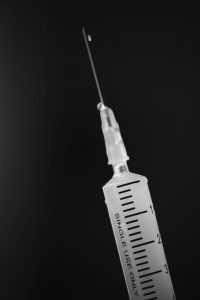Knowledge of mental health issues, including substance use disorders is on the rise. Opiates such as heroin are among the most talked-about choice substances today. So, what is heroin? Poppy plants are used to make morphine which is then utilized to create heroin. The drug is better known as black tar, big H, horse, and smack. The drug is sticky and appears brown, white, or black in its coloring. Some people even mix it with cocaine to get the effects of speedballing. That’s what the drug is, and how it may be identified, but addicts are invested in concealing the actual drug. What cannot be hidden, is the addicted person. But how can you tell if someone is on heroin?
How Can You Tell If Someone Is On Heroin?
Heroin affects our bodies in many ways. The drug is fast-acting in the same fashion as other opioid drugs. It latches onto opioid receptors where we feel pain and pleasure. Heroin regulates our sleep patterns, heart rate, and breathing.

The drug has short and long-term effects on our bodies. But these may be signs to watch for if you’re asking yourself, ‘How can you tell if someone is on heroin?’:
- Feeling parched
- A warm reddening of your skin
- A weighty sensation in your arms and legs
- Queasiness and throwing up
- Extreme itching
- A foggy state of mind
- Nodding out between conscious and semiconscious
- Difficulty with sleep
- Changes to your menstrual cycle
- Collapsed veins if using via IV
- Difficulties with nasal tissue if snorting
- Heart valves and lining infections
- Abscesses
- Trouble defecating
- Cramping in the abdominal area
- Diseased kidney and liver
- Lung disorders such as pneumonia
- Mental health difficulties
- Trouble with sex
The DSM 5: Opioid Use Disorder
Just like other substance use disorders, Opioid Use Disorder has tell-tell signs. What are some of these signs?
- Taking opiates more often and for a longer period than you first set out to do.
- Lots of time spent wanting, trying to use less, or attempting to stop using opioids.
- Cravings: An intense desire to engage in the use of opiates.
- Continuing to use regardless of the drug’s interference with occupational or educational goals and work. Not stopping use when it begins to affect home life and your ability to complete responsibilities at home.
- Social or interpersonal troubles experienced due to your opiate use. Regardless of noting this, you do not cease your opioid use.
- Reduced time, or no longer participating at all, in the social, work, or leisure activities you once enjoyed. Your substance of choice begins to become your social, occupational, and leisure activities in a sense.
- Continuing to use regardless of seeing that it is causing harm. Using in hazardous situations or putting yourself in harmful conditions due to your use.
- Mental health issues increasing due to your use. This does not stop you from continuing with your opioid relationship.
- Changes to your tolerance. You no longer respond the same way to the same amount of opioids as before. Therefore, opioids or heroin no longer give you the same results unless you have more of them.
- Withdrawal symptoms experienced when the substance has left your system. For heroin users, this includes extreme cravings, trouble staying still, difficulty with sleep, extreme muscle and bone pain, throwing up, diarrhea, leg twitching that you cannot control, and chills.
Kick Your Heroin Habit Today
Get the help you crave today at Discovery Place of Burns, Tennessee. Our alternative rehab center is located on Spencer road upon 17 scenic acres of country farmland. We have seasoned volunteers and staff members to help you to get the aid you need to kick opiates and heroin. What are you waiting for? Call us today at 1-800-725-0922

